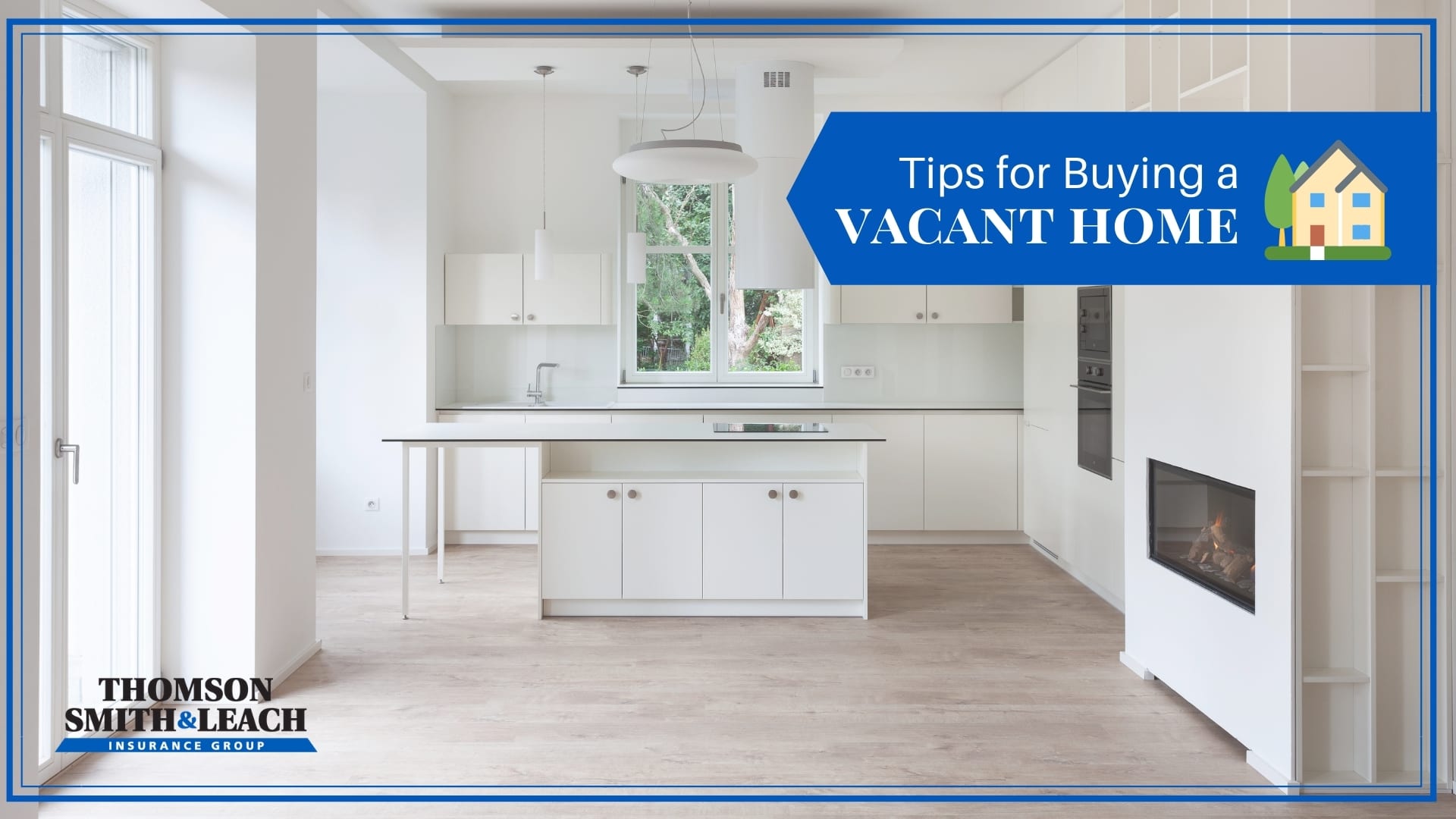4 Tips for Buying a Vacant Home
A vacant home is typically defined as a home that is completely empty—free of furniture, day-to-day utility items, and all of the possessions that make a house a home. This is somewhat similar to an unoccupied home, which simply means no one is living in the home for a specified period of time.
Vacant homes may be stocked with standard indoor appliances, but it’s usually a hit or miss depending on the home itself. Homes can be vacant for many reasons—perhaps they’re waiting to be purchased, leased or rented, or maybe they’ve already been purchased, but the buyer is waiting to move in. Although there are many factors that make it convenient to buy a vacant home— including the lower price— certain problems, technicities, and factors can arise with the new purchase. Here are four important things to keep in mind before you decide to purchase a vacant home.
1. Cost
On par with all major purchases, the cost will be one of the most important factors to consider.
Purchase price: As mentioned earlier, vacant homes are typically lower in price which is a major benefit compared to an occupied home. According to redfin.com, vacant houses sell for about $11,000 less than comparable homes that are occupied. Of course, this number will certainly vary by region. The higher costs come in to play when deciding to insure a vacant home.
Coverage: Most insurance companies offer coverage for unoccupied and vacant homes, however, these policies can reach upwards of 50% more than a regular homeowners policy. The cost of insuring a vacant home can be a deal-breaker for some, especially if the home requires extensive repairs, new appliances, and extra clean-up. It is important to remember that insuring a vacant home runs higher than normal homeowners insurance because there are greater risks of owning a vacant property, including vandalism, theft, weather-related perils, and fire. The vast majority of homeowners policies tend to exclude or strictly limit coverage if the home is vacant, which means vacant homeowners will need more specific coverage. Check with your insurance provider to find a plan that fits your needs and be sure to prioritize coverage options depending on the geographic location of your home. Don’t forget to consider liability coverage as well, which applies to anyone that is hurt on your property.
Restrictions: With coverage options comes coverage restrictions. Many insurance companies have varying definitions of what is a vacant home vs one that is unoccupied. Time and age are factors as well, with restrictions ranging from how old the home in question is to how long it’ll stay vacant. These are all questions that your insurance provider should ask when finding the coverage option that works best for you.
2. Professional Inspection
Before spending any money on a vacant home that you’re thinking about purchasing, hire a professional to inspect it. Not only is a professional inspection smart in the long-run, but you’ll know exactly what is broken, what needs to be fixed, and all of the things that can possibly go wrong in the future. If anything, a professional inspection will prevent any impulse decisions or buyer’s remorse. Be prepared to pay for the home’s electricity for the duration of your inspection.
3. Appliances
If you plan on purchasing a vacant home with the intention of living in it or renting it out to someone, understand that the appliances may not be top-notch quality. Even worse, the appliances may have become unusable due to long periods of no use. Depending on the scenario at hand, some vacant homes will require a slew of new appliances. It’s no question that appliances are an investment though, especially for lessors.
Additionally, mold can pose a threat to your vacant home’s appliances due to moisture trapped inside. Mold can grow on more than just appliances as well, so check for mold in the walls and floors. The associated health risks of living in a home with mold are extreme, so if mold is found during your inspection, you may want to rethink the purchase.
4. Unanticipated Repairs
While the list price of a vacant home may seem attractive on the surface, it’s what matters inside that can seal (or break) the deal. Vacant homes— especially those that are older— can suffer from broken pipes, leaking roofs, and multiple other home damages that can’t be seen from the exterior. Before purchasing a vacant home, perform a walk-through and ask the seller for a history of repairs that have been performed on the home. One of the most costly expenses is a leaking roof, so check for signs of mold, ceiling stains, and any damp external walls. It will also be beneficial to scope out the plumbing beforehand. Ensure the cost of repairs makes sense with your personal budget and the money you have allotted for the home.
Without a doubt, weighing the pros and cons of purchasing a vacant property is beneficial. Factors such as the cost of insuring the home, as well as the cost of the home itself will take the lead in the decision-making process. Many insurance companies may offer discounts, such as a discount for installing security measures around the house to prevent theft. These decisions tend to be made on a case-by-case basis, so talk to your insurance agent to find the right insurance option for your new vacant home.


Recent Comments